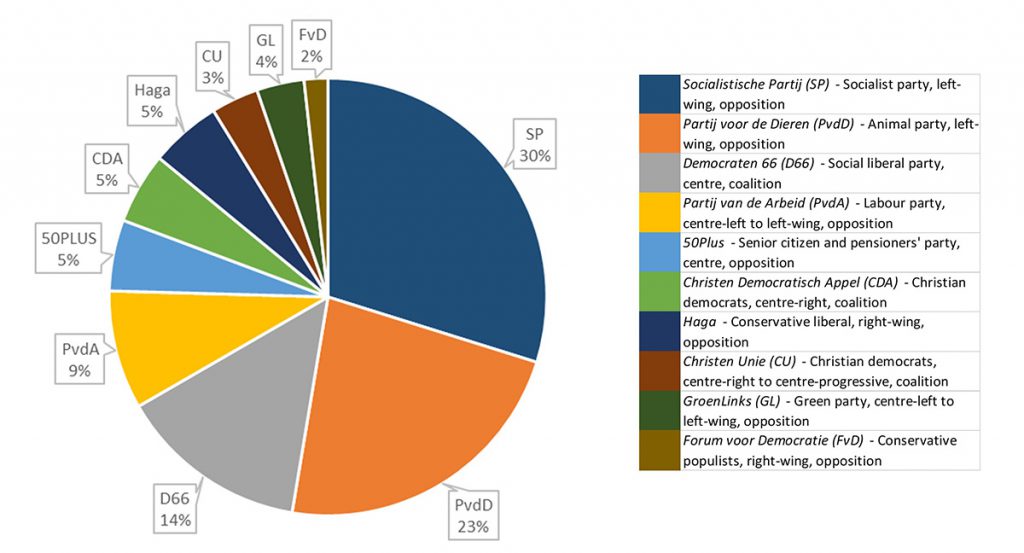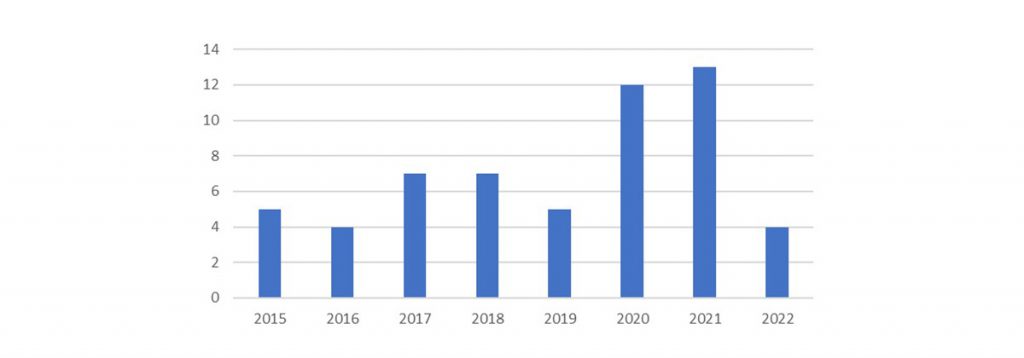Can progress be made towards Sustainable Development Goals in the Netherlands when they are largely absent from Dutch politics? Maya Bogers, Francesco Saverio Montesano, and Melanie van Driel argue that Members of Parliament who have ‘adopted’ individual goals might provide the answer
In 2015, all UN countries adopted 17 Sustainable Development Goals (SDGs). By doing so, they agreed to strive towards a more equitable and sustainable world. Seven years down the road, has that commitment led to action? The last two Sustainable Development Reports have shown that, overall, governments are no longer making progress. OECD countries – arguably those with the most resources – have met or are close to meeting only a quarter of their targets.
The Netherlands, according to government officials, 'is fully committed' to sustainable development action. The Dutch Prime Minister even mentioned the 17 goals as 'the guide to a sustainable recovery' during the September 2021 UN General Assembly. But has the Netherlands followed through on its commitment?
Certainly, this discursive dedication has not led to much concrete action. Seven years and two coalition-accords since the SDGs' adoption, the goals are far from the centre of national policy. The most recent coalition-accord mentions SDGs only in the sub-section on development aid. The top official responsible for promoting the implementation of sustainable development goals in the Netherlands, the Dutch SDG-coordinator, has (once again) been placed within the Ministry of Foreign Affairs.
The message seems clear: SDGs are something for there, not here. Some, of course, may see this as a smart strategy to avoid sensitive topics, like the necessary steps towards sustainable consumption and production (the topic of SDG 12) and reduced (economic) inequalities (SDG 10).
Seven years and two coalition-accords since the SDGs' adoption, they are far from the centre of national policy. They are something, it seems, for there, not here
A Voluntary National Review of the goals was delivered at the 2022 High Level Political Forum. In it, the Netherlands acknowledged that ‘efforts must be stepped up’ to attain the goals. Until that happens, however, a major gap will remain between the Dutch government’s ambitious promises and concrete action towards SDG implementation.
In the Dutch parliamentary system, a core task of the House of Representatives is to check the government and hold it accountable for its promises and actions. If the House of Representatives actively takes up the SDGs, this might be a way to start bridging the gap. But could that happen?
In party manifestos for the 2021 Dutch parliamentary elections, references to SDGs were scarce. Coalition party Democrats 66 (D66) cited them most often. However, even their party programme only referred to the goals four times. Of the other coalition parties, the Christian Democratic Appeal (CDA) and Christian Union (CU) referred to them three times and twice respectively. The biggest coalition party, the People’s Party for Freedom and Democracy (VVD) made no reference at all to the SDGs. This is surprising considering it was a Prime Minister from this very party who, at the UN General Assembly, hailed SDGs as the routemap to a sustainable recovery.
Opposition parties appear even less interested. Other than citations by the Labour Party (PvdA), the Reformed Political Party (SGP) and GreenLeft (GroenLinks), references to SDGs remain largely absent from opposition party manifestos. Even GreenLeft refers to the goals only once, despite this party's focus on (environmental) sustainability. The Party for the Animals (PvdD), in a similar vein, does not even mention SDGs in its objectives.
Debates in the House of Representatives barely touch upon SDGs, either. The Goals have been the subject of parliamentary questions a mere 57 times since 2015 (see illustrations below). Here, it was mostly opposition parties who used the SDGs to frame their questions, more than half of which were asked by The Socialist Party (SP) and GreenLeft. This is quite remarkable, given that these two parties make scant reference to SDGs in their own manifestos.


It appears, therefore, that the opposition occasionally uses SDGs to check on the government, but largely ignores them when giving shape to their own plans. Also remarkable, but perhaps not surprising, is that a majority of SDG-themed questions pertain to development cooperation and foreign trade. Sustainable development in the Netherlands itself receives little attention. Once again, Dutch political actors appear to regard the SDGs as something aimed at ‘poor countries’.
To foster better domestic SDG uptake and boost a particular Goal's visibility in public debate, Members of Parliament were asked to become SDG ‘foster parents’
To foster better domestic uptake, a new initiative was launched in 2017: #AdopteerEenSDG (#AdoptAnSDG), asking Members of Parliament to become ‘foster parents’ of one particular Goal. Each MP would then strive to increase the visibility of that SDG in the public debate. Since the initiative's launch, a considerable number of MPs, from across the political spectrum, have taken part.
The initiative, however, has clearly not translated into increased political activity around or commitment to the SDGs. Many foster parents have acknowledged the challenges of promoting a more proactive approach to the SDGs in Dutch politics.
Sustainable Development Goals were supposed to guide Dutch policymaking. But after seven years we see little initiative from either government or political players to make this happen. So how can the government create momentum? A good first step would be for SDG foster parents to crank up efforts within their respective parties, to increase SGDs' visibility. To highlight the importance of the Goals at the domestic level, they should also push to include more systematic references to SDGs in parliamentary questions.
This might help the rest of Dutch politics to finally ‘see’ the SDGs in their entirety. The Netherlands' SDG Action Day is coming in September, as is the Global SDG moment at the UN General Assembly. The time for Dutch action is ripe.
An earlier version of this research was published on the website of the Netherlands Association for the UN.